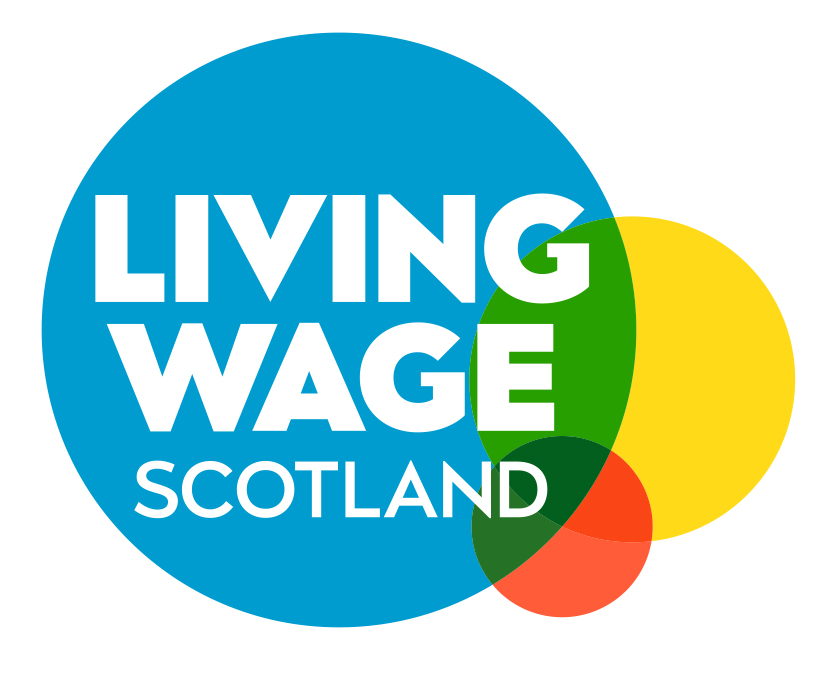- 68,000 Living Wage workers in Scotland are set for a pay boost as over 3,750 Living Wage Employers are signed up to pay the new rates
- The real Living Wage is the only UK wage rate independently calculated based on the actual cost of living and is different from the Government’s National Living Wage, which is the legal minimum employers must pay to over-21s
- The new real Living Wage rates are now worth over £2,262 more per year for a full-time worker in Scotland than the legal minimum (National Living Wage)
- Almost £600m in extra wages has gone to low paid workers in Scotland since 2011, through the Living Wage campaign
Over 68,000 people in Scotland working for more than 3,750 real Living Wage Employers are set for a vital cost-of-living pay boost, as the Living Wage Foundation’s real Living Wage rates rise to £12.60 an hour across the UK (60p or 5% increase).
A report published earlier in October; ‘Poverty in Scotland 2024’ by Joseph Rowntree Foundation shows that in Scotland, 6 in 10 people in poverty have one or more adults in work, and this rises to 67% of children in poverty, noting that tackling low pay and poor quality of work can help solve rising poverty rates in Scotland.
Recent research by the Living Wage Foundation shows that despite inflation easing, many of Britain’s 3.7m low paid workers are still struggling with the impact of years of high prices, with 42% having less than £10 left each week after covering essential expenses, 39% having used a food bank in the past year and 28% using one at least once a month.
The real Living Wage vs the ‘National Living Wage’ – the difference
The real Living Wage is different to the government’s minimum wage rate, which for those over the age of 21 is often called the “National Living Wage”. It is a higher, voluntary rate that is independently calculated based solely on the actual cost of living. The UK Government’s rate is the minimum businesses are required to pay by law.
The real Living Wage applies to all workers over the age of 18 working for a Living Wage Employer and is now £12.60 an hour. The ‘National Living Wage’ applies to those over the age of 21 and is worth £11.44 an hour.
A full-time worker earning the new, real Living Wage would earn £2,262 a year more than a worker earning the current government minimum (NLW), and £1,170 more than their current pay.
The Living Wage movement continues to grow
Despite the economic challenges, in the past three years record numbers of employers have signed up to pay the real Living Wage, including to their third-party contractors like cleaners and security guards, with 1 in 9 employees in the UK now working for an accredited Living Wage Employer.
There are now over 3,750 Living Wage Employers in Scotland, with recent accreditations including First Bus. They join half of the FTSE 100 companies, household names like SSE, Aviva, Ikea, Burberry and LUSH as well as thousands of small businesses, who are choosing to pay the real Living Wage to provide workers and families with greater security and stability.
Peter Kelly, Poverty Alliance CEO, said: “We all need an income that is enough to cover our needs and protect us from poverty, but too many workers in Scotland are struggling to stay afloat. A just Scotland would see every worker’s wage meet their everyday needs, and employers can play their part by paying the real Living Wage, which is the only wage rate in the UK based solely on living costs. We commend the leadership of more than 3750 accredited Living Wage employers in Scotland that have taken a stand to ensure workers can earn a wage that covers their needs, even when times are tough for many businesses. We call on many more employers to pay the real Living Wage and become accredited.”
Deputy First Minister of Scotland Kate Forbes visited Little Beehive Nursery near St Andrews to learn about the benefits of the real Living Wage. The nursery received real Living Wage accreditation in July 2020. She said: “After record-high living costs over the past two years, this will be a welcome boost for thousands of workers across Scotland.”
“The Scottish Government has championed the real Living Wage since 2015, and we have made it a legal requirement for all organisations receiving grant funding from a public body to pay the real Living Wage. This has enabled Scotland to have the highest proportion of workers being paid the real Living Wage or higher in the UK.”
Gaven Begg, Director of Begg Shoes said: “Begg Shoes is proud to be an accredited real Living Wage employer. This commitment provides our dedicated in-store teams with fair pay and peace of mind, especially in the face of rising living costs. We believe that investing in our colleagues is fundamental to our continued success. While customers may not know about the real Living Wage, they will certainly see and feel the difference when they shop with us – our team is happier, more engaged, and better equipped to provide an outstanding shopping experience.”
Emma, Footwear Stylist in Begg Shoes Perth store said: “Being paid a real Living Wage makes me feel valued by the business. It’s reassuring to know my hard work is recognised, and having a bit more income really improves my day-to-day life and living standards in these difficult times.”
Jo Dow, Chief Executive, Business Stream said: “We are proud to have been an accredited Living Wage Employer since 2017. As a responsible employer, our priority is to provide the best possible support to our colleagues, which includes paying a fair wage that recognises the hard work and value of our people. We fully support the new rate announcement, which in the context of rising living costs, will support the Living Wage movement’s wider goal of reducing in-work poverty”.
There are now 76 Living Hours employers in Scotland, including abrdn, Rowen Glen and Molke going beyond payment of the real Living Wage to also provide a guaranteed minimum of 16 hours work a week, a month’s notice of shift patterns and a contract that reflects hours worked.
Over 50 UK employers who want to ensure their workers never face poverty in retirement are signed up to the Living Wage Foundation’s Living Pension accreditation, 12 of which are based in Scotland. Living Pension Employers provide a Living Pension savings level using either a cash (£2,800) or percentage (12%) target, with a minimum of 7%, or £1,630, contribution coming from the employer.
Kirsty Lunn, Founder and Creative Director, Molke said: “People deserve secure hours and a fair wage for their work as a bare minimum. The last couple of years may have been incredibly difficult for all businesses, but by investing in our staff by being both a real Living Wage and Living Hours employer, we’ve felt the benefits; A more loyal workforce, higher staff retention, more interest when recruiting and a better brand image to both customers and staff. Paying the real Living Wage makes a real difference, and I would encourage all businesses to get accredited.”
Jennifer Clarke, Design & Marketing Assistant, Molke said: “Before I worked for Molke I had a Zero Hours contract, I didn’t have a strong sense of future or any true stability. Through Molke’s commitment to the real Living Wage and real Living hours, I have been able to buy a house and consider starting a family. Something that previously, I wouldn’t have been able to do. It has given me financial stability. Seeing the pride and commitment that Molke has to being a real Living Wage employer, makes me proud to work for them.”

